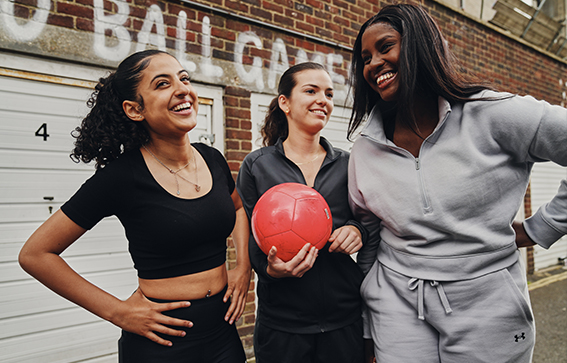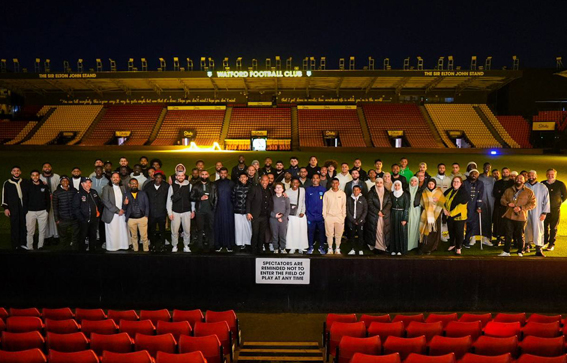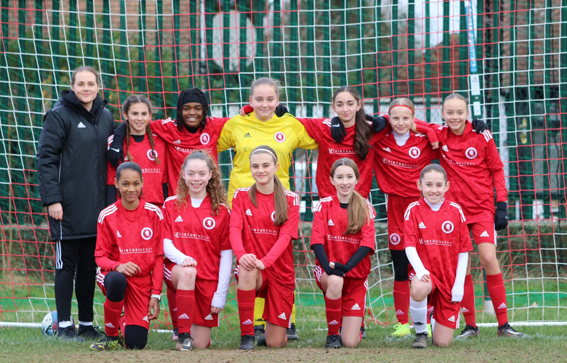Last summer, I was waiting to go into an interview for a graduate role at Manchester City when I came across a video about Pride on the club website.
City in the Community had organised a tournament for local young people that celebrated inclusivity, to mark Manchester Pride weekend. It was uplifting, and you could tell from the film that it had a positive impact on everybody involved.
One reason for that was Kalvin Phillips, who was lending his support and adding a bit of star power. Asked about the message behind the day, he said: “Wherever you go, you should always be welcomed for who you are and how you are.”
I thought it was so refreshing to see such a clear sign of allyship. Heading into my interview, I knew that this would be a place where I could be myself and feel safe.
I’m happy to say that I got the job - and in every sense, the experience has been amazing. Now, I’m working in different areas and departments at City on a two-year scheme and I know that I want to work in football long-term.
If you had told me a few years ago that I’d be on this career path, I wouldn’t have believed you. I didn’t feel like I belonged in football when I was growing up. The culture didn’t seem to overlap with my interests and I didn’t see myself represented in the game.
However, as I got older, I sensed that the sport was beginning to shift. I ended up writing about football culture for my dissertation, which made me fully appreciate how the sport can be a powerful vehicle for social change - and that there was still so much untapped potential there.
Engagement in Pride is a prime example of that. There are now over 150 Pride events in the UK, stretching across the summer months as people in cities and towns come together to celebrate their LGBTQ+ communities. Manchester Pride, held in August, has been going since the 1980s and it’s one of the country’s biggest festivals.
Pride parades give life and character to a place in much the same way as football clubs. Both help to spread joy, encourage belonging and positively affect the community around them. Every year, the British game leans more into Pride and I love to see it.
This visibility is slowly growing - one part of the picture is a network called the LGBTQ+ Professionals in Football Collective. The group has only been going a year but is so valuable in driving towards change in the sport.
There are players, coaches, match officials and those of us who work in other roles in football, all living in various parts of the country but united in our vision of an industry in which LGBTQ+ people are contributing and thriving.
Because there’s not many of us yet who are out in football, particularly in the men’s game, there is massive value in having a wider network and creating this sense of community.
Allyship is a big part of it too. Amplifying and supporting - even something as small as sharing a social post - it all helps to shape attitudes for the benefit of everyone.
When we mention how representation in men’s football still has a fair way to go, I feel it’s important to acknowledge and respect the women's game in our conversations.
There are so many inspirational LGBTQ+ role models in the women’s game, which indicates a different level of comfort when it comes to sexuality. Take a player like Demi Stokes, for example, who is open about her sexuality and how she started a family with her partner. I think it’s amazing that we have an LGBTQ+ person in our sport who can talk so openly about this.
It brings me back to the work that can be done in football around Pride, and the video that I saw before my interview. Pride deserves to be part of the plan to be more inclusive for clubs. Whenever and wherever these events happen, it’s a perfect point in the calendar for football to go outside and get involved.
Beyond that, to create real change in the culture, you have to build momentum and keep going, through education, awareness campaigns, and initiatives like the LGBTQ+ Professionals in Football Collective.
It makes me emotional to think about how I felt when I was younger compared to what it’s actually been like working in football. But here I am! I hope that other LGBTQ+ people in the game have a similar sense of optimism that I feel about the future - and get to share in my sense of Pride too.


